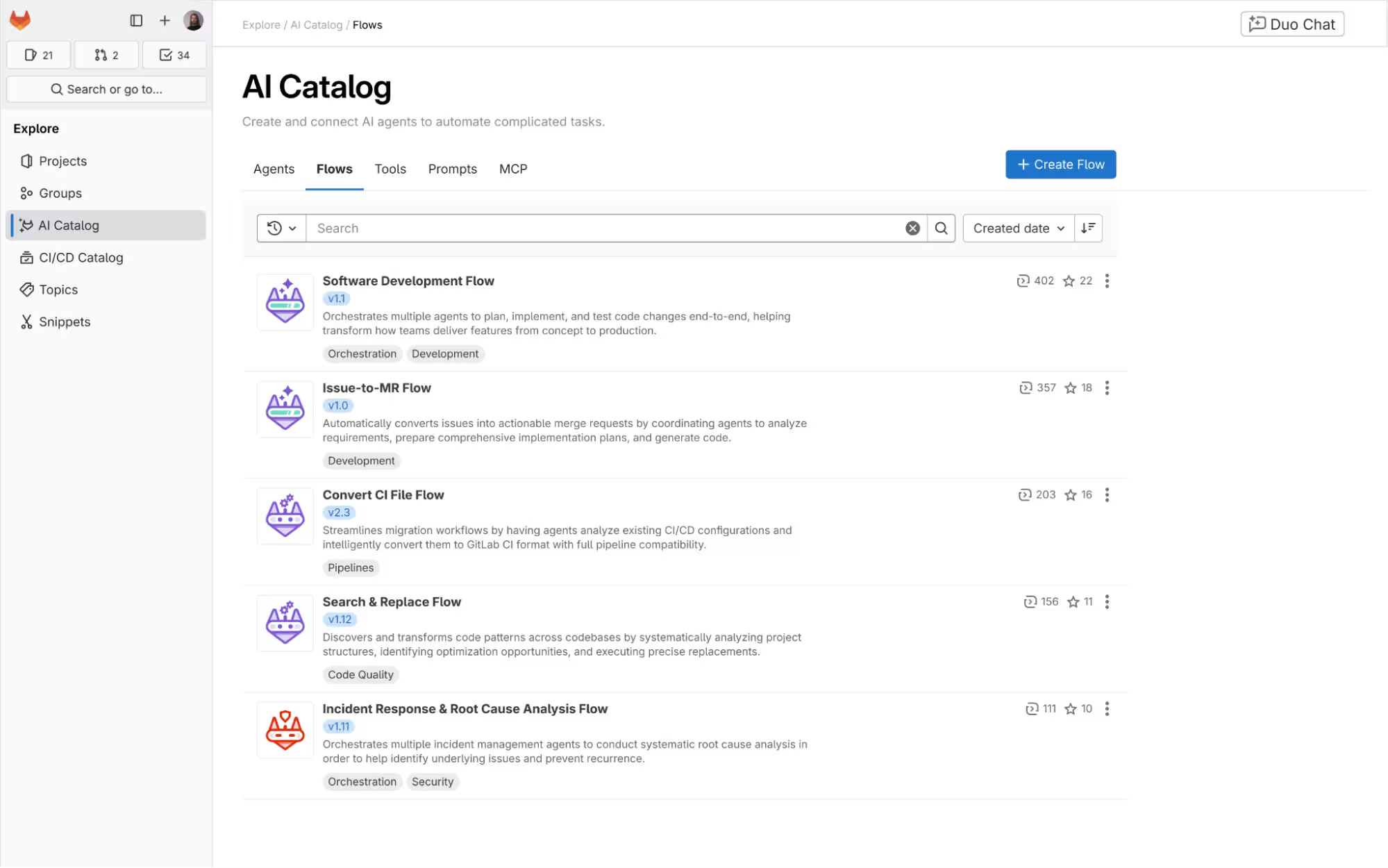GitLab this week made available a public beta of a platform for building, managing and orchestrating artificial intelligence (AI) agents that have been trained to automate a range of DevOps tasks and workflows.
Emilio Salvador, vice president of strategy and developer relations for GitLab, said the GitLab Duo Agent Platform will enable DevOps teams to assign tasks to AI agents both synchronously and asynchronously using an extensible platform that provides full visibility across the software development lifecycle (SDLC).
GitLab as part of that effort is building a catalog for AI agents and a knowledge graph that will enable AI agents to access data beyond the limits of the context window that any large language model (LLM) currently provides, he added. The GitLab Duo Agent Platform also supports the Model Context Protocol (MCP) developed by Anthropic to connect to MCP servers to provide access to additional data sources.
AI agents will, as a result, become members of a DevOps team that might service the needs of a single developer or engineer or an entire software engineering team, noted Salvador. For example, AI agents might help gather additional context, clarify ambiguities or even make changes to codebases and repositories.

While GitLab was an early AI pioneer in terms of making AI co-pilots available to DevOps teams, AI agents move well beyond simply providing a passive chat interface to interact with an AI model, noted Salvador. It’s not clear to what degree AI agents might supplant the need for AI co-pilots but it’s apparent DevOps teams require a more advanced set of capabilities to automate workflows, he added.
DevOps teams, will instead be able to have conversations that include capabilities to expand commands such as /explain, /tests, and /include that create a “delegation language” designed to more precisely assign tasks to an AI agent that using custom rules can now be highly personalized to each member of the team.
Finally, GitLab also revealed it has expanded the number of integrated development environments (IDEs) it supports to include JetBrains portfolio that is widely used to build AI applications.
The pace at which DevOps teams are embracing AI to build and deploy applications is unknown, but a recent Futurum Group survey finds 41% of respondents expect generative AI tools and platforms will be used to generate, review and test code.
Mitch Ashley, vice president and practice lead for software lifecycle engineering at Futurum Grouo, said success using AI agents will be is heavily influenced by the context with which they operate. GitLab Duo Agent Platform leverages GitLab’s system of record to provide AI agents with deep project context for orchestrated, asynchronous collaboration. It reimagines DevSecOps, shifting from isolated tasks to integrated, intelligent workflows, he added.
At this point, it’s less a question of whether AI agents will be relied on to help build and deploy software and more a question of how extensively they will be. AI agents are, in effect, the equivalent of a junior developer that while talented should still have their work verified by a senior developer. With the arrival of GitLab Duo Agent Platform, the context that AI tools require to generate higher quality code that actually runs in a production environment will significantly improve. Just as importantly, many of the manual tasks that today conspire to make DevOps workflows tedious should soon be automated in a way that not only accelerates the pace of software development but also improves the quality of the applications deployed.




